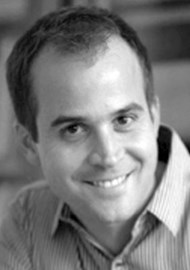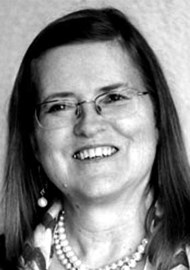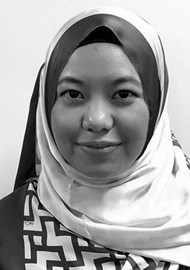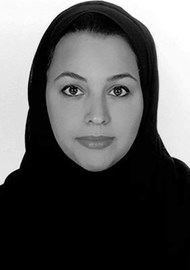
The COVID-19 pandemic has affected, and in some areas, put a complete hold on, audiology practice around the world. In April 2020, during the peak of the pandemic for many regions, our audiology Global Ambassadors provided their reports from their respective corners of the globe.
 South Africa – De Wet Swanepoel
South Africa – De Wet Swanepoel
In South Africa the private audiology practices are mostly closed. They can serve existing patients with telehealth but not new patients. In the public health system, many are also redeployed to deal with COVID-19. Certainly lots of uncertainty amongst clinicians and a strong call to expand telehealth to intake of new patients and serving existing patients.
 North America – Jackie Clark
North America – Jackie Clark
In light of the growing concerns of an eminent COVID pandemic, much like other countries, the US Government created a list of essential workers, of which audiology is not included. The American Academy of Audiology sent a video and emails likewise reporting that audiology is not listed as an essential profession during the COVID pandemic. However, there has been recognition for the need of leniency in facilitating urgent needs by the population, but there are also some gray areas, and encouragement to meet the demands of patients via telepractice.
In Texas, I have three different perspectives I can share below. Make no mistake when sharing inconveniences to potential bankruptcy of business, we all understand that nothing can compare to the vast numbers of deaths, life-long health problems, turmoil and stress of all who are and have been impacted by COVID-19.
- My private practice (in very rural Texas): about 10-14 days prior the Texas Governor declaring a state-wide shelter in place, we cancelled or moved our new patients to a mid-May appointment. We set up a criterion for seeing patients – we would see those who were having significant difficulty communicating due to hearing loss or hearing aid malfunction which would place the individual in harm’s way. Upon arrival, our patients were asked six simple health/travel questions and would undergo temperature assessment with a no-contact temperature gauge. If all seven criteria were met, they could be seen and asked to wait in their cars. However due to our concern for patient safety, within two days we decided we would only process hearing aid malfunctions. The population we serve in very rural Texas are elderly with pre-existing conditions, and must travel 45 minutes to the nearest rural hospital, and 90 minutes to a fully-equipped and pandemic-prepared hospital; some rely on a friend or state-provided transport to travel, and live at or below poverty level.
- A large not-for-profit speech and hearing centre that is part of the university (where I typically see patients) made a decision to shutter the large centre (also about 10 days prior to the Texas Governor declaration) by barring entry of all patients, most support staff, all faculty and all clinicians. Only ~5 administrative support staff report to work on a very part time basis. Consequently, the centre moved to telepractice for paediatric hearing aid fittings. All hearing aid repairs are sent through US postal service to the centre for daily pick-up by a clinician who assesses if the hearing aids need to be sent for repair or can be cleaned and repaired locally, then sends the hearing aid/s with problems resolved back to the patient via US postal service. I understand that they have been moving toward telepractice for the hearing aid fitting for experienced adult wearers.
- The vast majority of audiology colleagues have been told by employers (or as private practice owners) that everyone would shelter in place with a plan to process broken hearing aids or maximise reach to patients with teleaudiology. There is a very small number of private practices that have kept their doors open full time with full services. There is a delicate balance to maintain and there have been a number of reports of unethical practice during this time.
Though, I have been involved in telepractice, I find irony in the profession of audiology being wholly unprepared to engage in technology (that has been utilised for a number of years) during a time of pandemic. When there are these instances of chaos and confusion, I find myself waiting with positive anticipation for the innovation that will surface from the necessity of shuttering our traditional practices.
 India – Krishna Yerraguntla
India – Krishna Yerraguntla
In India, due to lockdown, all services have come to a standstill. Almost all audiology services have been closed at individual, hospital and institution-based setups. However:
- A few individual practitioners had drug license to their clinic and were exempted from lockdown. They are able to offer services especially for meeting the needs of batteries and fine tuning.
- Some of the practitioners with prior experience of teleaudiology are providing services such as counselling, fine tuning to their clients.
- We were having series of webinars on teleaudiology and had polls during the session. It was observed that almost 30-40% of practitioners are providing services through telepractice platforms.
- Providing batteries and ear moulds is major concern. A few practitioners have teamed up with the medical stores and are providing them to their clients through medical shops.
- We also observed more than 50% of practitioners want to move and explore these platforms to offer services.
 Malaysia – Shasa Aziz
Malaysia – Shasa Aziz
In Malaysia we are in partial lockdown, movement control order (MCO). But ALL audiology private services are closed. The manufacturing lines - the ones with LABS - have just received permission to start working. We are also seeing some areas that have GREEN ZONES are possibly opening soon (up north of Malaysia).
The majority of private audiology centres are doing teleaudiology, teletherapy and telehealth. My company is also one of those who operated online. A lot of hearing aid companies are providing webinars. We particularly started webinars that cover more audiological and speech topics. All companies are selling their hearing aid accessories online and delivery teams are working non-stop, even over the weekends. We hope to be out of this MCO by 28 May as we are in Ramadhan now and Eid; normally a lot of religious events would happen during this time.
 Middle East – Hala A Al-Kofide
Middle East – Hala A Al-Kofide
Most audiology clinics in the main governmental hospitals have closed. Our clinics have been closed but we are working from home, mainly doing phone consultations. We have our main line working so we are answering all the calls and inquiries. As for cochlear implant patients with urgent problems, we direct them to their local CI company for device troubleshooting and they can get their accessories through multiple delivery services. For urgent cases such as chemotherapy and radiation patients, we are able to accommodate them due to their urgent situation. A daily on-call list of audiologists is available to answer and take new inpatient and outpatient referrals. As for private audiology clinics, I think the ones that are attached to private hospitals are still working but independent private audiology practices have momentarily stopped.
No audiologists needed to be redeployed. The ministry of health has done a great job by keeping things under control and we are truly blessed for that.








